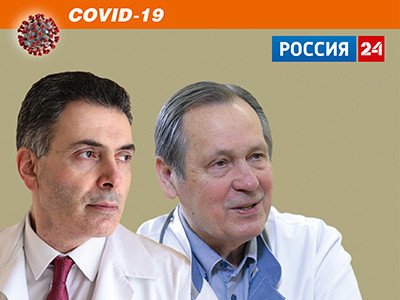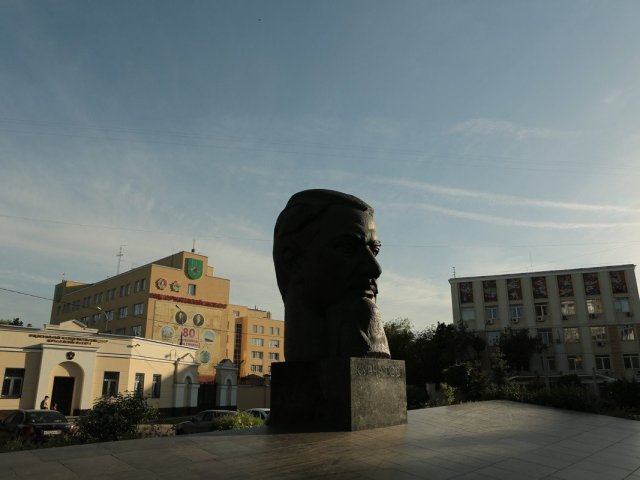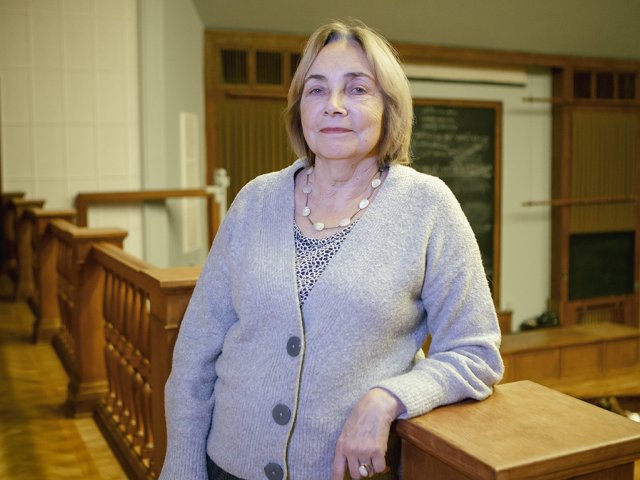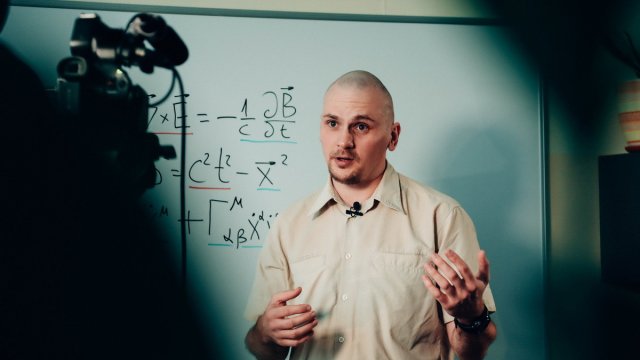The guests of the Mneniye program of the TV channel Rossiya 24 and the Russian Academy of Sciences with Evelina Zakamskaya are Academician Alexander Grigorievich Chuchalin and Simon Teimurazovich Matskeplishvili, Deputy Director of the University Clinic of Lomonosov Moscow State University, Correspondent Member of the Russian Academy of Sciences. On the program, they spoke of the post-COVID syndrome which may cause severe complications, and on prevention the COVID infection and the correlation of COVID infection rates with the levels of airborne allergens.
Scientists increasingly believe that post-COVID is a separate disease that requires a special treatment. As the host of the Mneniye program Evelina Zakamskaya said, there is even a new special term in the international classification of diseases – the post-COVID syndrome. Some studies indicate that only 1/3 of those who had COVID-19 have been able to return to their normal lives in full, while the rest still experience health issues for a long time.
Alexander Grigorievich Chuchalin, RAS Academician, pulmonologist: “There is a concept that developed in the last 2 to 3 months – the post-COVID syndrome. It’s not one but several diseases that affect multiple systems in the body. We’re talking about neuroinflammations. The syndrome affects memory, perceptual acuity, and causes depressive conditions. The post-COVID syndrome also affects the cardiovascular system and the lungs...” As Alexander Chuchalin explained, as regards the lung system, the patients suffer from shortness of breath with pronounced discomfort, reduced tolerance to physical exercise, with fibrotic changes being behind those symptoms. Some people develop pulmonary hypertension. COVID-19 also can cause pulmonary bullae, when the bullous pulmonary disease develops precipitously. According to the Academician, in some patients the symptoms manifest themselves in a “most desperate form.”
Simon Teimurazovich Matskeplishvili, RAS Correspondent Member, cardiologist, explained that the post-COVID syndrome does not necessarily develop in those who had COVID-19 in a severe form: “It doesn't take a person who was hit hard with COVID-19 for the post-COVID syndrome to develop. Moreover, there is an increasing number of patients who experienced mild or even no symptoms while infected with COVID-19 and then experienced fever and all the disorders mentioned by Alexander Chuchalin for a long time – for months. The underlying cause of all that is capillaritis, haemodynamics issues. Today, we also define a special group of diseases caused by issues in the autonomy of the neural system, which manifest themselves as arrhythmia, cardiac abnormality, memory defects, and sleep disorders. Many patients do not recover their sense of smell, which they lost due to COVID-19, or have altered perception of taste and smell, which causes them a lot of discomfort, although their blood test results are good, at least on the standard blood tests. That is why in-depth research of the post-COVID syndrome is necessary...”
In response to the question: “Is there a correlation between COVID-19 infection rates and the flu/cold seasons or high-allergen rate periods, which also happen in spring?” Alexander Chuchalin said: “The German Allergologists Society conducted a study and compared the concentration of airborne allergens and the rise in COVID-19 infection rates. They are discussing the issue that the high season for allergies does coincide with the period when people are more prone to infections...” Academician Chuchalin believes that allergy symptoms are in many ways similar to those of COVID-19. “The coronavirus itself is not a factor that changes sensitivity to allergens in the body, but in combination with other factors, other viruses and bacteria, it contributes to such changes. <...>. We are accumulating new information on how the coronavirus behaves when climate, humidity, temperature and concentration of allergens change. I’ve done a simple thing. I compared the allergen chart for Moscow (MSU botanists make such charts) to the COVID-19 infection rates. They matched perfectly...,” Alexander Chuchalin says.






















